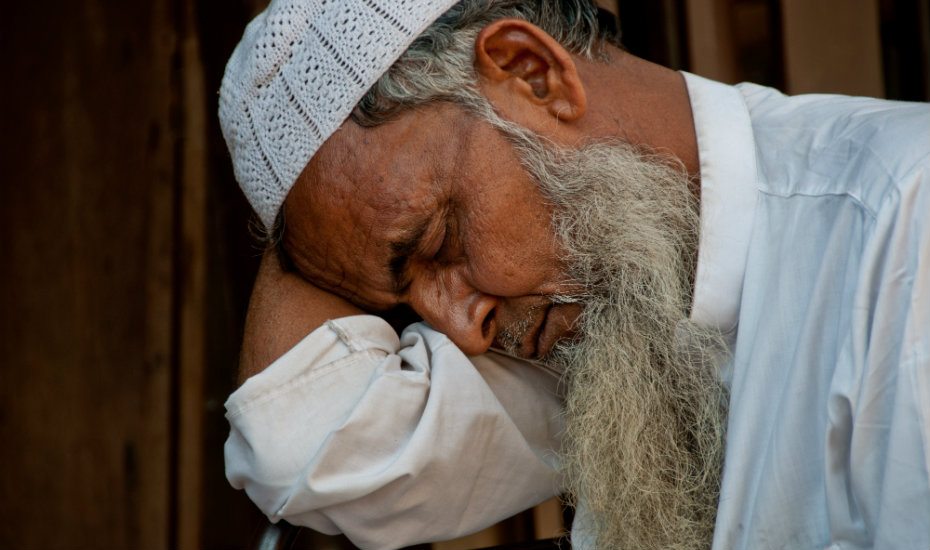
With the majority of Indonesia's population being Muslim, Ramadan is celebrated country-wide, including in Bali. Here’s what to expect if you’re heading to the island during this sacred month.
Ramadan’s a big deal for all Muslims around the world. Before the joyous Eid celebration where we put on spiffy new clothes and traditional outfits, there’s still the month of Ramadan to go through. Often referred to as the holiest month on the Muslim calendar, Muslims fast from dawn until dusk every day, abstaining from food and drink. Ramadan is also a month of reflection and repentance, so individuals will also abstain from negative thoughts and emotions like anger and impatience, and other vices too.
Approximately over 200 million Indonesian people (86.7% of the country’s total population) are Muslim, making it the country with the world’s largest population of Muslims. So if you live or work in Indonesia, it’s highly likely that you’ll know someone who will be observing Ramadan and know about some of the rules. But for the clueless sorts, there might be a lot of questions you might have… that we can answer!
RAMADAN 2024 IN INDONESIA: ALL YOU NEED TO KNOW

When does Ramadan start in Indonesia?
This year, Ramadan starts on 12th March 2024. The day marks the beginning of a month-long fast for the Muslims, before ending with Lebaran (or Idul Fitri) 30 days later.
When is Lebaran, and what can we expect?
After enduring 30 days of fasting, Muslims celebrate with a day of feasting with family and friends – the celebration is called Idul Fitri or Lebaran. This year, Lebaran falls on 10th to 11th April 2024, but the national holiday starts from Monday, 8th April 2024, until Monday, 15th April 2024. Note that government-run organisations (like immigration and post offices), banks, etc, may be closed during this time.
On Lebaran day, you’ll often see family feasts that include a number of Lebaran dishes like ketupat (rice packed in weaved leaves and shaped into a square), beef rendang, opor ayam (chicken braised in coconut based soup), as well as sweets like dried dates and Indonesian street-style snacks, AKA jajan pasar. And if you’re lucky, your Muslim neighbours might share their traditional delicacies with you!
What is Ramadan and what happens during the month?
Ramadan is a holy month in Islamic tradition, during which Muslims fulfil their religious responsibility to restrain themselves from hunger, thirst, and any sinful thoughts and actions. The word “Ramadan” means “to burn”, which is why the month is held during the hottest time of the year, when the sun shines the longest.
During the whole month of Ramadan, Muslims fast for approximately 14 hours from sunrise to sunset. Each day begins with a nourishing breakfast (AKA sahur) before sunrise, followed by a whole day of fasting (no eating or drinking), and ends at sunset with a well-deserved iftar dinner. For Muslims, being able to fast is a blessing, and is often celebrated with good deeds like sharing meals with neighbours or making donations to those in need.
Top tip: if you are fasting in Bali, there are some places offering special sahur and iftar menus. To give you an idea, here’s a roundup of the top places offering daily delectable sahur and/or iftar this Ramadan 2024:
Ramadan at Makase – From 10th March 2024, celebrate the holy month at Hotel Indigo Bali Seminyak Beach, with delectable dishes and takjil aplenty. You will be treated to an Indonesian style family feast that will keep you nourished. And if you’re staying at this beachfront resort, you can request a sahur breakfast brought straight to your cosy room.
Ramadhan Nusantara Gourmet – From 12th March to 11th April 2024, get a gourmet taste of the archipelago at one of Ubud’s fine diner, Kokokan, at iftar. The restaurant located in Kappa Senses Ubud resort will be showcasing a carefully curated selection of Indonesian dishes packed with flavours for an unforgettable month-long celebration.
Psst… there’s more to come, right here!
RAMADAN 2024 IN INDONESIA: WHERE TO ELEVATE YOUR STAY IN BALI WITH SPECIAL PACKAGES

Eid Escape at InterContinental Bali Resort
Spend a serene Eid month by the sea at InterContinental Bali Resort and you will be rewarded. For a minimum stay of two nights, enjoy an elevated stay at the luxurious Jimbaran Bay resort and you’ll receive a complimentary breakfast or sahur (upon request) for two, plus a complimentary extra bed and breakfast for a third guest. Children under 12 years old will have access to the vibrant Planet Trekkers kids club. All of this as the five-star facilities like the fully-equipped fitness centre and blissful spa are right at your doorstep.
Date: 1st April 2024 to 30th April 2024.
Price: From IDR 4,005,439++ per night.
To book: Book direct via the website.
Keep your eyes peeled for more Ramadan 2024 stay deal announcements.
RAMADAN 2024 IN INDONESIA: FUN FACTS & FAQs ABOUT FASTING
1. So… can we still eat around people who are fasting?
Sure you can – but do ask first. Some folks might be ‘chill’ with people eating lunch around them, but for some, it might be too distracting. Most Muslims won’t take offence, so it’s always ask first just to be sure. Otherwise, you could always join them when they break fast (iftar) at dusk!
2. Do you lose a lot of weight from fasting?

Fasting is not really about weight loss. On the contrary, Ramadan might even lead to weight gain! Eating large meals in the wee hours of the morning, and then late at night with a long period of low activity in between can be bad on the metabolism. Of course, there’s always self-discipline, so most people keep the weight gain off, but at the end of the day, Ramadan is a time for celebrating with friends and family, so who cares about weight!
3. You can’t eat and drink, but you can smoke right?
No! The fasting month is all about self-discipline, which means giving up vices like smoking, drinking, and even gossiping about others. Sexual activity during the duration of the fast is also not allowed.
4. What about brushing teeth?
Brushing your teeth is perfectly fine during Ramadan. In fact, maintaining good personal hygiene is considered to be very important within the religion. Islam places emphasis on both physical and spiritual cleanliness and purification. Another day, gingivitis!
5. You fasted for a whole day, so can you feast later when you break fast?

Regardless of fasting, overeating is considered bad. Iftar is the meal to replenish and rehydrate after a whole day of not eating and drinking, so being selective about the food you eat is important – especially avoiding fatty foods that might affect energy levels and your mood. Otherwise, you’ll be in a constant state of… food coma.
6. Do you have to rest all day because you don’t have energy from not eating?
It’s better to not be sedentary all day during Ramadan, because low levels of activity can lead to weight gain. Exercising is fine during the fasting month but perhaps nothing too strenuous. On a side note, do be understanding when your friend or colleague is feeling a little lethargic during the day; not only haven’t they eaten all day, they had to wake up super early for sahur (the pre-fasting meal)!
7. Must sick people fast too?
Luckily, there are some exemptions to fasting. Fasting during Ramadan is encouraged for those who are considered well and fit enough to do so, but if you are ill or have any health conditions which may suffer from fasting, you are not obliged to fast. Pregnant and breastfeeding women are exempt, as are those on their periods. If you are travelling or on a long journey, you’re also permitted to eat and drink as normal. People in these groups are expected to make up the days missed at a later stage, if they are well enough to. It is also not necessary for young children and the elderly to fast.

